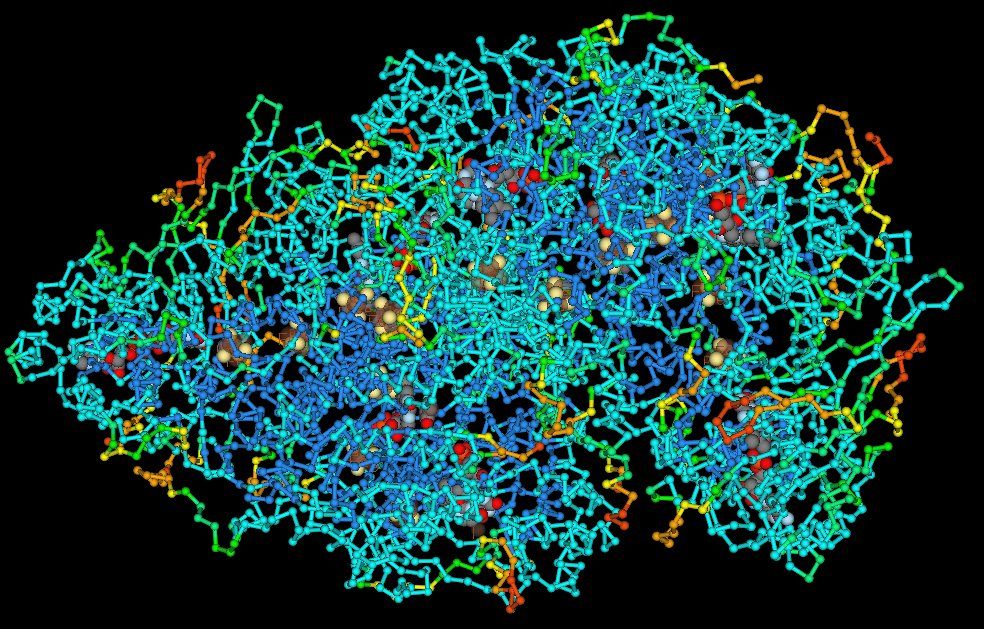Polymers in Building And Construction: Stronger, Less heavy, and A Lot More Long lasting
Polymers in Building And Construction: Stronger, Less heavy, and A Lot More Long lasting
Blog Article
Exploring the Varied Applications and Benefits of Polymers in Different Industries
Polymers, with their diverse variety of residential properties and capabilities, have come to be indispensable in various industries, each reaping distinct gain from their application. Polymers. From improving security and performance in the automobile industry to transforming medical devices in the healthcare industry, polymers play a pivotal role. Moreover, their environmentally friendly nature is altering the landscape of sustainability practices. As we explore the midsts of polymers in electronics, we uncover innovative innovations, while their structural honesty changes the realm of construction and infrastructure. The prevalent impact of polymers across industries is a testimony to their adaptability and versatility, shaping the future of plenty of fields.
Automotive Sector Applications
Polymers play a pivotal function in enhancing the efficiency and sturdiness of numerous components within the auto industry. These functional materials are extensively utilized in the production of various parts, varying from indoor components to under-the-hood applications. One famous usage of polymers in the vehicle sector is in the manufacturing of light-weight parts. By replacing conventional steel get rid of polymer-based alternatives, lorries can accomplish better fuel efficiency without endangering on stamina or safety and security.

Health Care Industry Advantages
In various medical care applications, the benefits of making use of polymers are widely recognized for their diverse series of valuable residential properties. Polymers play a crucial role in the healthcare industry because of their adaptability, biocompatibility, and cost-effectiveness. Among the key benefits of polymers in healthcare is their capacity to be tailored to specific requirements, such as versatility, longevity, and biodegradability, making them perfect for a wide variety of medical applications.
Polymer-based materials are thoroughly utilized in medical devices, such as catheters, implants, prosthetics, and drug distribution systems, as a result of their biocompatibility and capacity to simulate all-natural tissues. These products can lower the danger of allergies or denials, boosting individual security and outcomes. In addition, polymers are light-weight, making them appropriate for wearable clinical gadgets and ensuring individual convenience.
Additionally, polymers make it possible for the growth of ingenious treatment techniques, such as hydrogels for tissue design and nanocomposites for targeted medicine shipment. Their ease of handling and sanitation makes them necessary for maintaining high requirements of health in medical care settings. In general, the varied advantages of polymers add significantly to innovations in medical innovation and person care.
Ecological Advantages of Polymers

Moreover, polymers can add to power financial savings because of their lightweight nature. In sectors such as transport, light-weight polymer materials can assist lower gas intake and greenhouse gas emissions. Additionally, polymers can enable the development of energy-efficient products such as insulation materials that enhance energy conservation in buildings.
Furthermore, polymers play a critical duty in reducing water contamination. For instance, the usage of polymer-based filtering systems can successfully eliminate contaminants and pollutants from wastewater, protecting water resources and environments. In general, the environmental advantages of polymers make them beneficial possessions in promoting sustainability and environmentally friendly methods across numerous click to read more markets.
Polymers in Electronics and Technology
Considering the raising demand for innovative and lasting options in modern sectors, the combination of advanced polymer modern technologies in the world of electronics and technology has actually arised as a critical strategy for driving performance and performance. Polymers have changed the electronics industry by making it possible for the manufacturing of lighter, more adaptable, and sturdy digital gadgets. From smartphones to clinical devices, polymers play an essential duty in enhancing item layout and functionality.
One substantial advantage of polymers in electronics is their protecting properties, which assist safeguard fragile electronic elements from environmental variables and electrical disturbance. Additionally, polymers are crucial in the growth of versatile display screens, wearable technology, and published electronic devices, providing limitless possibilities for developing smart and interconnected gadgets.
Moreover, using polymers in electronic product packaging has actually resulted in developments in miniaturization and thermal monitoring, enhancing the total performance and reliability of electronic systems. As innovation remains to progress, the versatility and flexibility of polymers will undoubtedly drive even more technology in the electronic devices industry, shaping the future of innovation.
Function of Polymers in Building And Construction and Framework
Polymers offer numerous benefits in the building and construction market due to their flexibility, longevity, and cost-effectiveness. One crucial function of polymers in construction is their usage in layers and sealants, giving defense versus environmental factors such as wetness, UV radiation, and corrosion.
Furthermore, polymers play a vital function in lasting building and construction methods by enabling the advancement of energy-efficient structures. Protecting materials made from polymers aid control interior temperatures, reducing the requirement for heating and cooling down systems and eventually lowering power consumption. In addition, the use of polymer-based compounds in facilities projects such as bridges and roadways improves their longevity and minimizes upkeep expenses. Overall, the unification of polymers in building and facilities showcases their substantial influence on modern engineering methods.
Final Thought
To conclude, polymers play a crucial role in different markets such as auto, medical care, environmental, electronics, and construction. Learn More Here Their flexible residential or commercial properties make them useful in producing innovative solutions and items. From improving gas efficiency in cars to improving medical devices, polymers provide various advantages. Additionally, their effect on decreasing waste and promoting sustainability highlights their significance in contemporary applications. The extensive use polymers demonstrates their significant contribution to progressing technology and improving top quality of life.
Report this page